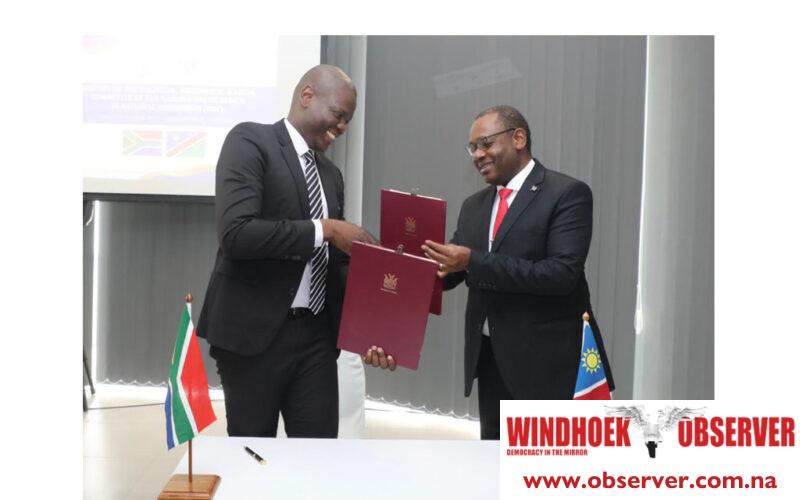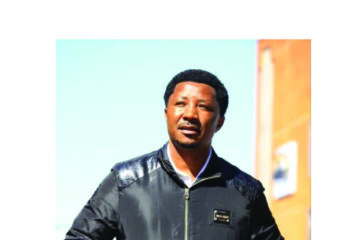Niël Terblanché
The Orange River, which forms part of the border between Namibia and South Africa, has been a point of contention for decades but renewed efforts to resolve the matter and to find a lasting resolution have been launched.
In this regard, Namibia and South Africa convened the Political, Diplomatic, and Legal Committee of their Bi-National Commission (BNC) in Swakopmund over the past two days.
The meeting, co-chaired by Namibia’s Minister of International Relations and Cooperation, Dr Peya Mushelenga, and South Africa’s Minister of International Relations and Cooperation, Ronald Lamola, focused on the critical report of the Namibia-South Africa Joint Committee of Experts on the Orange River Boundary.
Established in 2016, the Joint Committee of Experts was tasked with providing recommendations and advice to the two countries’ ministers on the boundary, a complex issue that has remained unresolved since Namibia’s independence in 1990.
The Committee’s report, originally completed in 2017, was formally presented during the Swakopmund meeting, marking a milestone in the ongoing negotiations.
Speaking after the meeting, Mushelenga commended the work of the experts, noting that while significant progress has been made, much remains to be done to reconcile the positions of the two countries on the boundary.
“It is not in the mutual best interest of current and future generations of both countries to leave the matter of the Orange River Boundary open without a conclusion,” he said while pointing to the importance of concluding the negotiations.
The meeting was aimed at the continued collaboration between Namibia and South Africa.
During the meeting, both countries reaffirmed their commitment to resolving the boundary issue through principles of good neighbourliness, transparency, and mutual trust.
After the meeting, the Joint Committee compiled a report with possible resolutions that will now be submitted to the Heads of State of both nations for further consideration.
During the meeting, the two delegations also reviewed the implementation of decisions from the Third Session of the Bi-National Commission, held in October 2023.
According to a joint communique, both sides noted satisfactory progress on several issues but stressed the need for faster and more effective implementation of all agreements to deliver tangible socio-economic benefits to the citizens of both countries.
The meeting also provided an opportunity for the two countries to exchange views on several regional and multilateral issues of mutual concern, including the ongoing conflicts in Western Sahara, the Democratic Republic of Congo, and Sudan.
According to the joint communique, Namibia and South Africa expressed their solidarity with the people of Western Sahara, welcoming the European Court of Justice ruling of 4 October 2024, which found that trade agreements between the European Commission and Morocco had breached Western Sahara’s right to self-determination.
The ministers also reaffirmed their commitment to supporting Cuba and Venezuela, calling for the removal of economic blockades against both nations and condemned the illegal sanctions imposed on Zimbabwe, which they argued continue to hamper the socio-economic development of Zimbabwe and the wider Southern African Development Community (SADC) region.
Reflecting on the broader goals of the Bi-National Commission, Mushelenga reiterated the importance of cooperation between the two nations.
“It is only through effective and meaningful implementation of these agreements that we will be able to achieve tangible results for the socio-economic development of our countries,” he said while adding that the collaboration between Namibia and South Africa continues to strengthen their bilateral relations.
The minister said that both countries are committed to conducting a mid-term review of all decisions from the Third Session of the Bi-National Commission by May 2025.
The review, set to be hosted by South Africa, will ensure that both nations remain on track with their mutual goals.




